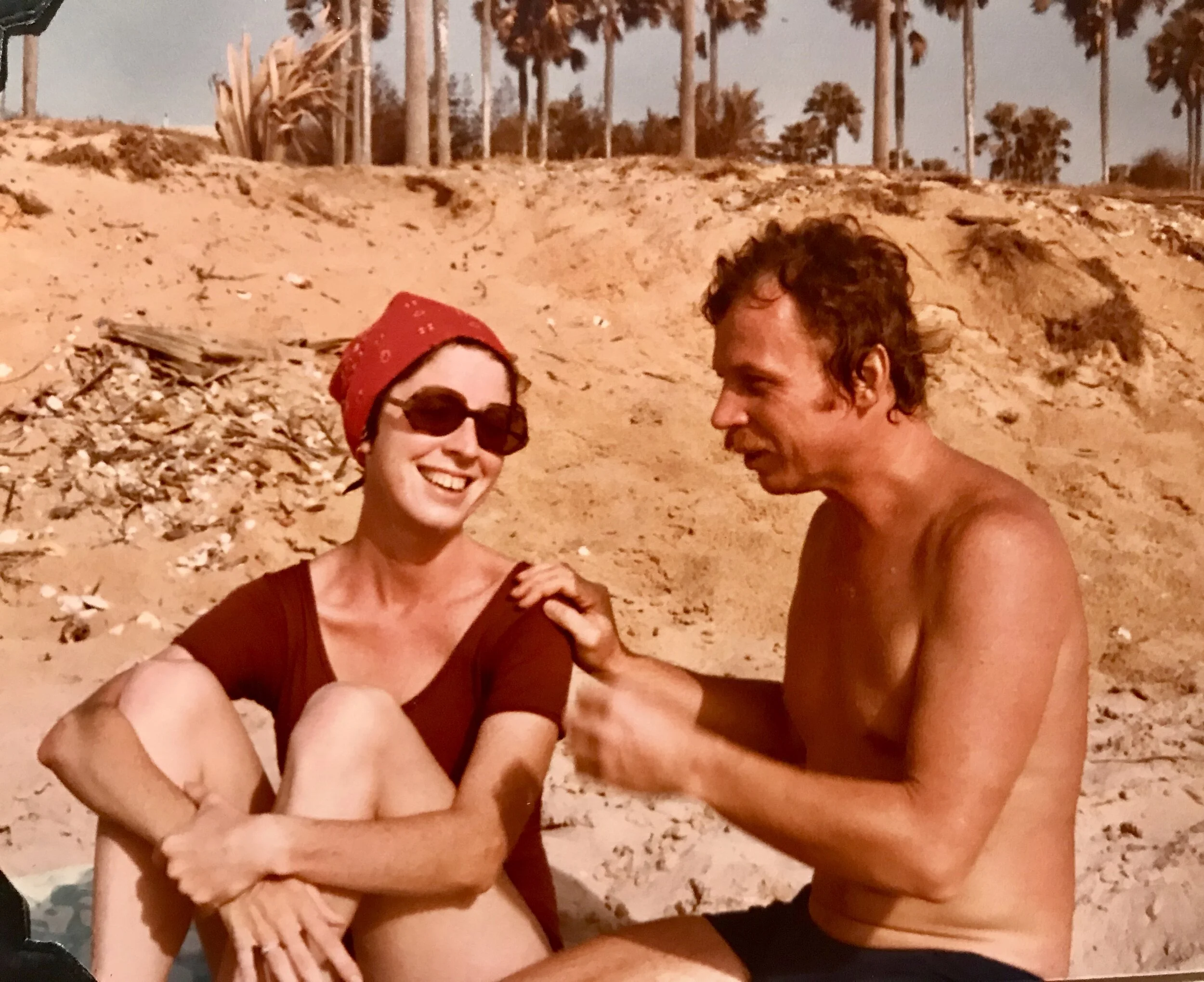Most of us have a few days—not just hours, but days—etched in memory. They don’t follow the usual routine. They start out one way and end up another.
When I was living in a small village in West Africa, I often got lonely. One day I got really lonely, so I rode my motorbike through the bush to visit a friend and fellow Peace Corps volunteer. Her nickname was Anna Banana, and like me, she lived in a village where nothing much was happening. We decided to ride our motorbikes to a bigger village that had a market. If we didn’t find any excitement there, at least we could buy some fish for dinner.
Off we went. The empty dirt road was corrugated from the rains and dusty from the heat. I had to clench the handlebars to keep the front wheel of my bike straight. We were riding side by side, but when a bush-taxi came barreling toward us, she pulled ahead to give it wide berth. I squeezed my eyes shut to keep out the dust as the taxi thundered past, and when I opened them, my friend was sprawled out in the road, her motorbike several feet away.
I stopped and ran over to her. How would I get help if her neck was broken? The road was empty, the closest village miles away. I couldn’t leave her alone, and it would be dangerous to move her. We would have to wait for another vehicle. It might take minutes, it might take hours.
She sat up. I sank down beside her, limp with relief. She’d broken her finger, not her neck.
I hid her motorbike in the bush. Gingerly, we rode mine back to her village, cleaned up her scrapes, and waited by the side of the road for a bush-taxi to deliver us to the Peace Corps nurse in the capital. The nurse decided the finger should be x-rayed, so she dispatched us to the hospital, where we ran into one of Anna Banana’s friends, a Polish doctor who not only expedited the x-ray, but invited us to dinner at his place that evening.
Once the x-ray confirmed that the finger in question was indeed broken, the Peace Corps nurse medevacked my friend to a neighboring country to have it properly set. I was going to return to my village, but Anna Banana urged me to stay in town. “Go to dinner. Adam’s a good cook, and his friend—the other Polish doctor I told you about—will be there. It’s been a rough day. Have some fun.”
So I stayed over with friends. I got a shower, borrowed a dress, and went to the Polish doctor’s house in my least flattering colors: olive and chartreuse. I met the other Polish doctor. They wined me and dined me and made me laugh. I not only had fun, I met the man I eventually married. That was forty years ago this week.
A few months after we met, hanging out on the beach. This was toward the end of 1979.
Who knew? How do you ever know? You wake up one morning feeling lonely, go visit a friend, and by evening you've met the love of your life. There’s such a long chain of events leading up to it. Maybe you decide to join the Peace Corps; maybe he decides to slip through the Iron Curtain. Maybe you can’t get the job you want here, and he can’t get the job he wants there, so you each end up somewhere else, perhaps somewhere far from home. You’re lonely, he’s lonely. You meet, and soon you’re inseparable.
Sometimes it seems impossible that out of the billions of people in the world, this is the one you met and married and are spending your life with. What chain of events brought you together? Was it as chance or was it fate?
